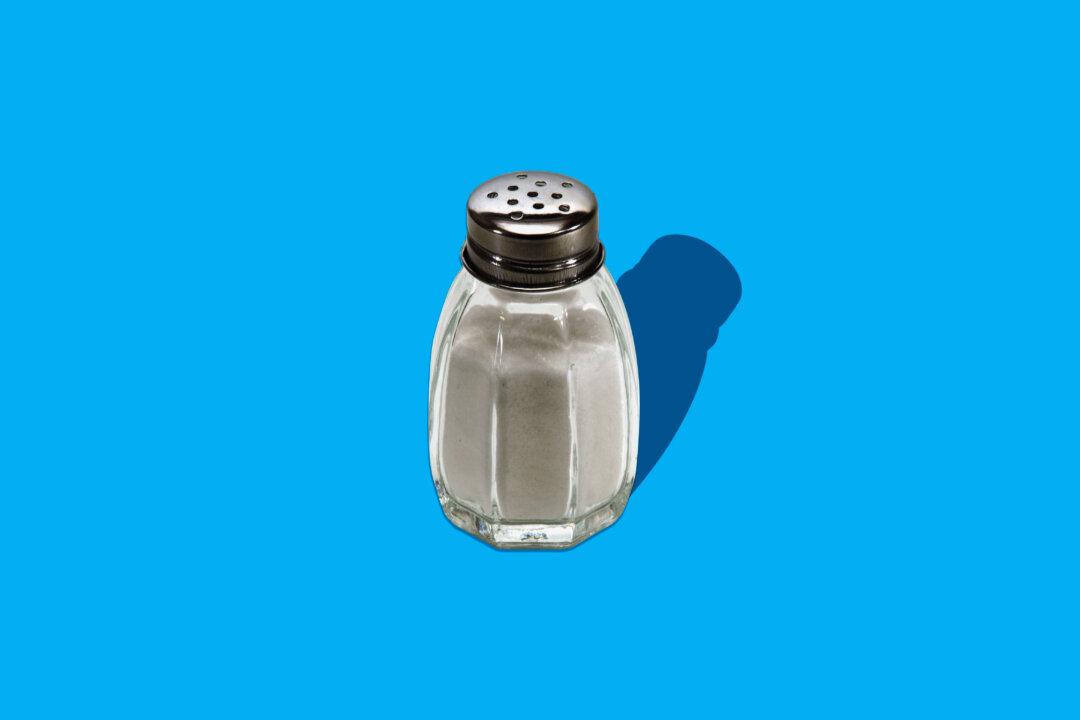
This should not be a surprise and we truly need to get a handle on it.
After all our biology evolved in the ocean and all land adaption did was to surely allow some depletion. So augmenting out diets with some sea salt is thus indicated. Again though not too much as we do not test out properly.
Most folks have actually adopted some from of sea salt so any issues should go away.
however testing against optimization for cancer is called for.
Salt Could Help Fight Cancer, Studies Show
While salt is often seen merely as a kitchen staple, its role in cancer treatment is gaining attention.
8/29/2024Updated:9/5/2024
https://www.theepochtimes.com/health/salt-could-help-fight-cancer-studies-show-5714423?
Could something as common as table salt be the key to advancing cancer treatment?
Two new studies, published on Aug. 28 in Nature Immunology, found that increased salt levels can significantly enhance immune cells’ cancer-killing abilities.
One of the two studies also showed that mice that consumed a high-salt diet also had reduced tumor sizes as a result.
“We were very surprised to see that salt instead improved their vigor, metabolism, and killing function and that this also reduced tumor growth in [the] mouse model,” Dr. Christina Zielinski, lead author of one of the studies, told The Epoch Times in an email.
“Salt turned out to be a surprisingly simple [but] overlooked factor” in boosting cancer-killing cells’ effectiveness, added Zielinski, who is also the chair of Infection Immunology at Friedrich Schiller University in Jena, Germany.
While research suggests a salt-based approach could become a valuable tool for enhancing cancer treatments, the researchers said in a press statement that they don’t recommend that humans eat more salt to activate the immune response against cancer.
Salt Enhances Killer T CellsResearchers from the Leibniz Institute for Natural Product Research and Infection Biology–Hans Knoll Institute discovered that sodium, a component of table salt, can significantly boost T cell activity. T cells are a type of
Killer T cells, specifically CD8-plus T cells, are essential for identifying and destroying cancer cells. They recognize cancer cells by their cancer proteins and release toxic substances to kill them directly.
The study led by Zielinski showed that human breast cancer tumors have higher levels of sodium compared to healthy tissue, and adding salt helped T cells fight cancer, leading to better survival rates for patients.
T cells treated with salt were also added to tumors in cell cultures and in mice. Researchers found that salt helps T cells use sugar and amino acids better, resulting in a better ability to eliminate tumor cells.
“We were able to show that sodium enhances the immune response of CD8+ T cells,” Chang-Feng Chu, a co-author of the study, said in a statement.
Further experiments showed that “pancreatic tumors shrank in the mice after we injected them with T cells pre-treated with salt,” Chu said. The salt improved T cells’ metabolism and energy levels by activating a special pump on the T cells.
“This pump enhances calcium entry into the cells, setting off signals that boost CD8+ T cell activation,” Zielinski added.
High Salt Diet Reduced Tumors in MiceA separate study from IRCCS Humanitas Research Hospital, Italy, led by Enrico Lugli, found that adding salt to cell cultures can awaken T cells, increasing their longevity and anti-tumor action.
Mice fed a high-salt diet also had reduced tumor growths due to improved T-cell activity, the researchers found.
Lugli said in a statement that adding salt helps prevent cells from becoming exhausted too quickly. It also improves T cells’ metabolism and energy, making them more effective against cancer.
The researchers found that adding salt to T cells caused a similar effect as exposing the cells to immunotherapy drugs that enhanced their activity.
Study co-author, oncologist, and researcher Agnese Losurdo said in the statement that a higher sodium level in the blood is associated with a better response to cancer immunotherapy.
However, the authors said that a high-salt diet “is not readily translatable to humans because of the consequences it could have on the cardiovascular system.”
They suggested that instead, T-cells can be exposed to high levels of salt for a short period of time before being transplanted into patients as a form of cancer therapy.
“Our results demonstrate that sodium chloride significantly impacts the functionality of CD8 T lymphocytes, crucial cells in the anti-tumor response,” Lugli said.
According to the team, while these findings are promising, they need to be confirmed in clinical settings.
Caution Is KeyThese findings add to a growing body of evidence suggesting that salt boosts the body’s immune response against cancer cells. A 2019 study from Belgium showed that a high salt diet in mice slowed tumor growth, compared to those that were not on a high salt diet.
However, caution is essential. Despite these promising results, Lugli stated that simply increasing dietary salt intake won’t have the same effects and could be harmful.
A recent study from earlier this year found that people who regularly added salt to food had a 41 percent higher risk for gastric cancer compared to those who rarely or never added salt. Research also shows that excessive salt intake can lead to cardiovascular disease, chronic kidney disease, osteoporosis, and stomach cancer.
Lugli added that the benefits observed in the studies are about manipulating salt concentrations outside the body to boost immune cell activity. Zielinski agrees, adding that the focus is on exposing immune cells to higher salt concentrations in a controlled environment before injecting them into patients.
Both research teams are now exploring how these findings could be translated into clinical settings to advance immunotherapy.
No comments:
Post a Comment